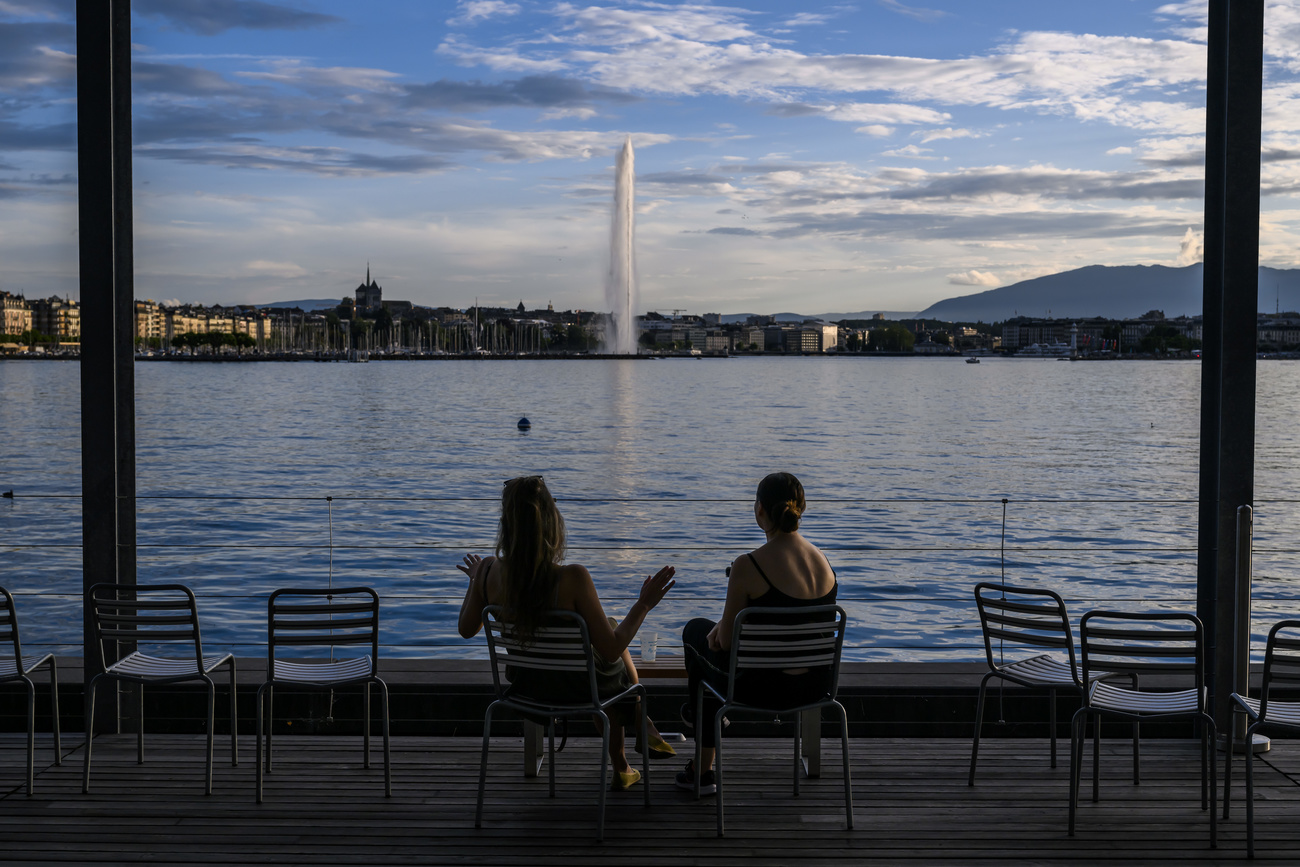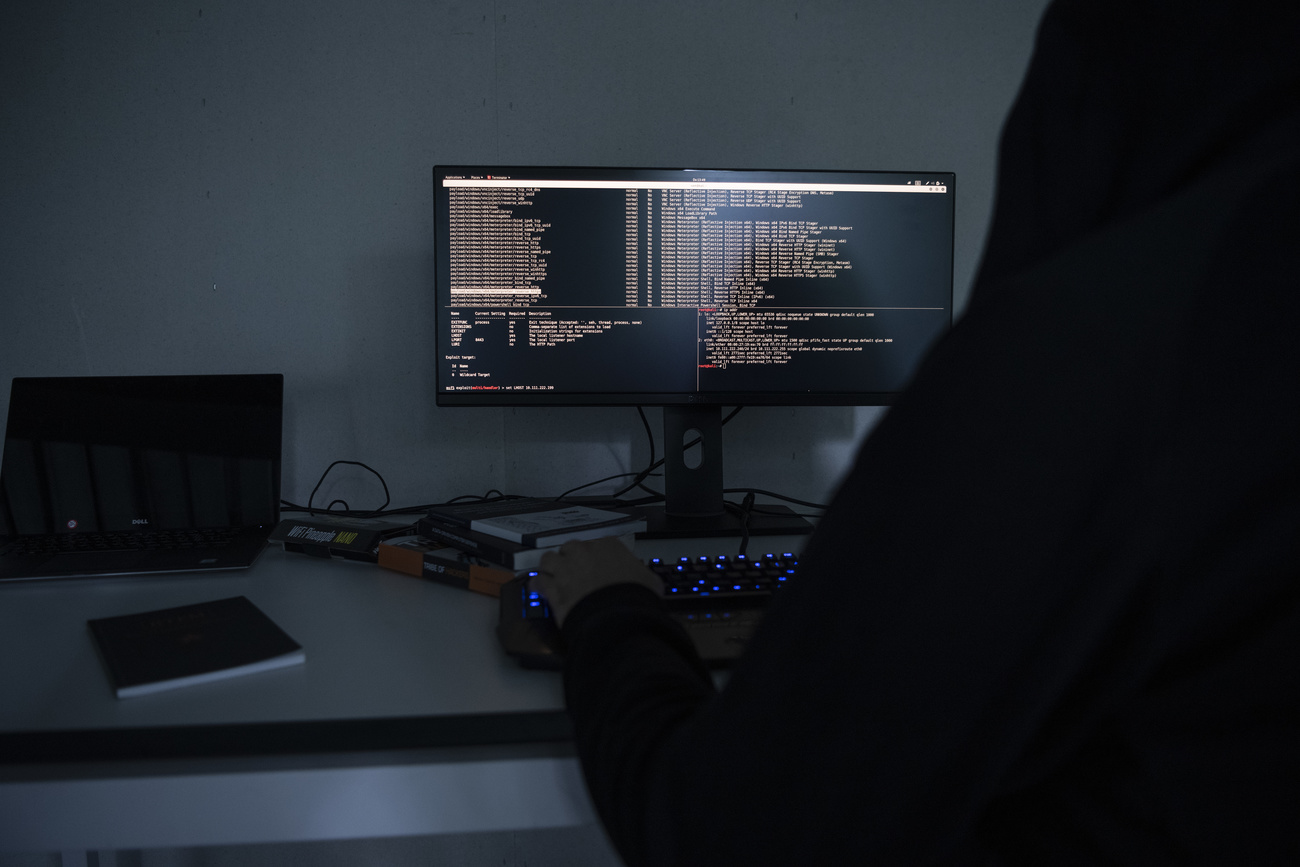How active are Chinese spies in Switzerland?

Recently, there have been multiple arrests in Germany linked to suspected Chinese espionage. A case has also gained attention in Switzerland: a former hotel manager in Meiringen, a canton of Bern municipality next to a military airfield, is suspected of spying for China. Ralph Weber, a Professor of European Global Studies at the University of Basel, sheds light on how the Chinese leadership gathers information in an interview with Swiss public television, SRF.
The philosopher and political scientist is a professor at the European Institute of the University of Basel.
SRF: How big is the problem of Chinese influence in Switzerland?
Ralph Weber: It’s a difficult topic to research, even from an academic point of view. A lot of it doesn’t want to be publicised and that makes it difficult to really get an informed overview of the situation. You have to assume that many such activities are also taking place in Switzerland.
SRF: In which areas is the Chinese leadership trying to exert influence in Switzerland?
R.W.: Firstly, there is Geneva as the location of the United Nations. It has traditionally always been a place of attempted influence and espionage. You have to assume that this is still the case today.
But anything to do with cutting-edge research at universities is certainly also of interest, as are companies and their products. The Swiss financial centre should also be exciting.
SRF: How does Switzerland deal with such spies?
R.W.: If such activities are detected in Switzerland, a person is usually expelled. Attempts are made to solve the problem quietly. It is very rare for something like this to come to court in Switzerland and be publicised in this way. The recent case in Meiringen is a good example of this. There are indications of espionage, but the federal government says nothing about it.
SRF: So Chinese influence is something that happens very subtly?
R.W.: It is a whole range of activities that cannot be separated from other party-state activities.
China also deliberately seeks contacts with other political parties in other countries in order to influence them.
This involves propaganda activities. It’s about Swiss actors reinforcing these points, perhaps being invited on trips. Let’s say to Tibet and then come back and say “The Swiss media have always misrepresented this. The state is actually doing really great development projects there.”
SRF: Other countries are also endeavouring to gather information and influence states. What makes the case of China special?
R.W.: China is a one-party state. The Communist Party has a very large bureaucratic organisation and has individual departments that are there for nothing other than to exert influence and bring people into line with the party. China also deliberately seeks contacts with other political parties in other countries in order to influence them. This is an apparatus that no other player has at its disposal.
SRF: How can or should we in Switzerland deal with China and its representatives?
R.W.: Firstly, it is important that we are aware of this problem. It would be naïve to believe that there is no espionage in Switzerland. We have a long history of Chinese espionage.
The second is indeed a difficult question. I believe that you have to treat representatives of the party-state with suspicion. You have to understand what goals these actors are pursuing. But when it comes to people of Chinese origin in Switzerland, it is important not to place them under general suspicion.

The case in Meiringen
In 2018, a Chinese family bought the ageing Hotel Rössli in Meiringen, right next to the military airfield.
On July 26, the Bernese cantonal police intervened at the Hotel Rössli in Meiringen. During this intervention, one person was provisionally arrested. A second person was also taken to a police station for further investigation. Both were released after the investigation was completed. There was no question of espionage.
In the summer of 2023, David W., the couple’s son, left the country in a hurry.

In compliance with the JTI standards
More: SWI swissinfo.ch certified by the Journalism Trust Initiative












You can find an overview of ongoing debates with our journalists here . Please join us!
If you want to start a conversation about a topic raised in this article or want to report factual errors, email us at english@swissinfo.ch.